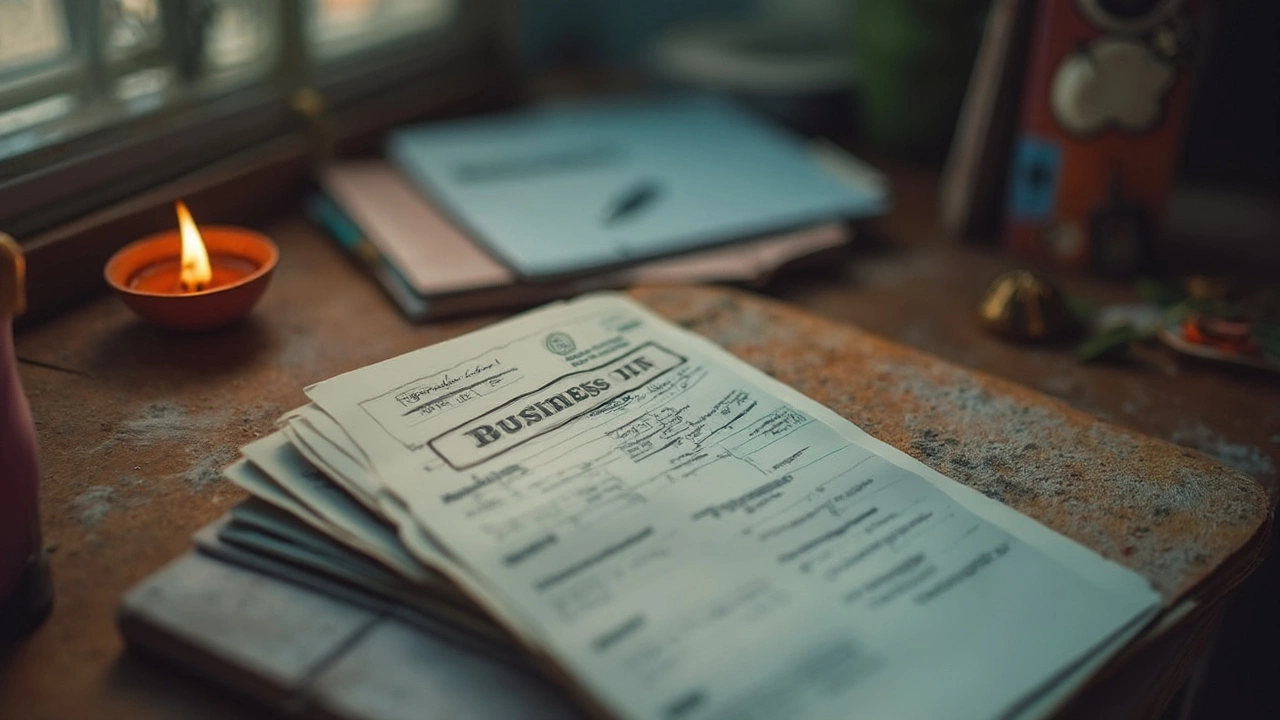Picture this: you’re excited about starting your business. You fill out the online form, grab your EIN (Employer Identification Number) from the IRS, and then… life happens. Maybe the launch never takes off, or you change your mind. That EIN just sits there. So, what now? Is the IRS going to kick your door down? Does it mess with your taxes next year? Relax—it’s not as dramatic as you’d think, but ignoring it isn’t the best plan either.
Lots of folks scoop up an EIN before they even settle on their logo or website. Some people apply just to open a business bank account or sign up for wholesale deals. Once that step passes, the EIN gets tossed in a digital drawer and forgotten. But the IRS doesn’t totally forget about it. The record is there, and now there’s a paper trail with your name (and often your Social Security number) attached. You don’t have to start using the EIN right away, but it does exist in the IRS system whether your business is running or not.
- What Is an EIN and Why Do People Get One?
- Does an Unused EIN Expire or Go Away?
- Can an Unused EIN Cause IRS Trouble?
- How to Close or Cancel an EIN You Never Used
What Is an EIN and Why Do People Get One?
An EIN stands for Employer Identification Number. The IRS hands this out so businesses can be tracked for tax reasons. Think of it like a Social Security number, but for your business. It’s a unique nine-digit number that the government uses to identify your company when you file taxes, open a bank account, or hire employees.
People get an EIN for several reasons. You actually need it if you hire employees (hence the name), but that’s not the only reason. Here’s why folks usually apply:
- Your business is set up as an LLC or corporation—these usually require an EIN right off the bat, even if you’re a one-person show.
- Opening a business bank account—most banks won’t let you open a business account without one.
- Hiring employees—even your first part-time helper means you’ll need an EIN for payroll taxes.
- Filing certain federal tax returns—if you owe stuff like excise taxes, or if you have a retirement plan for your company, you’ll use your EIN.
- Applying for business licenses or permits—some states or cities ask for an EIN on their applications.
- Switching your business structure—maybe you started as a sole prop but you’re changing to an LLC or corporation. The IRS usually says you need a new EIN.
Fun fact: You can get an EIN even if you never make a dollar or never actually hire an employee. Tons of solo entrepreneurs apply for one just to keep their Social off bank and vendor forms. The IRS gives out EINs free—no hidden fees—so there’s no cost barrier, either.
If you’re curious who really needs an EIN, check out the IRS stats: In 2023 alone, over 5.2 million EINs were assigned, which is way more than the number of businesses that actually end up hiring workers or even opening doors. So, you’re not the only one with an unused EIN sitting around.
Does an Unused EIN Expire or Go Away?
If you think your EIN (Employer Identification Number) has an expiration date, it doesn’t. The IRS doesn’t have a timer on your EIN. Once you get one, it sits there forever—unless you take steps to close it. The EIN just hangs out in the IRS system, even if the business never gets off the ground. So nope, it doesn’t expire and it doesn’t magically vanish.
People sometimes assume that if they don’t file taxes or don’t use the EIN, it’ll just disappear. Not true. The IRS holds onto that EIN for good, keeping a record tied to your name and business in its files. Even if years go by and you do nothing, that business registration piece doesn’t stop existing in government databases.
Here’s a key detail: you can’t recycle EINs. The number you’re assigned is yours alone—no matter how long it sits unused. If you change your mind about using it, you can’t pass it to someone else, and it won’t be “reset” for another use. Following are some basic facts about what happens to these tax ID numbers:
- EINs never expire due to non-use.
- The IRS will not reassign an unused EIN to another business.
- You’re still technically responsible for it—even if it was never linked to bank accounts, employees, or any revenue.
To get a sense of how common unused EINs are, the IRS actually assigns millions of new ones every year. But a decent chunk of them never end up registered with active businesses. Take a look:
| Year | EINs Issued | Estimated Unused |
|---|---|---|
| 2022 | 5.5 million | ~1.2 million |
| 2023 | 6.1 million | ~1.3 million |
If you no longer want the EIN, you have to take extra steps to properly close it with the IRS. Otherwise, it just stays in the system and doesn’t go away on its own.

Can an Unused EIN Cause IRS Trouble?
Here’s the straight deal: if you got an EIN but never actually used it for your business, you’re not automatically in hot water with the IRS. They’re not sitting around waiting to slap your wrist. But there are a few catches you should know about, especially if you forget to take care of some simple paperwork.
When you sign up for an EIN, it’s like alerting the IRS that you’re planning to run a business. If you don’t file any tax returns tied to that number, the IRS computer thinks, “Huh, what’s going on?” They might send you a notice or a letter asking, “Hey, where’s your tax return?” or, “Are you still in business?” Most people just get a standard CP-575 letter, but after a year or so of silence, the IRS could send you what’s called a ‘failure to file’ notice. It sounds scary, but if you never did any business—no sales, no employees, nothing—you can usually tell them you never started or used the business, and they’ll drop it.
Things can get dicey if you ignore these IRS letters. Blowing them off could turn a non-issue into a hassle. Sometimes they’ll flag your EIN as inactive, but sometimes it stays open indefinitely. It doesn’t wreck your personal taxes, but you don’t want to build up weird unresolved records with the IRS, either. Remember, your name and Social Security number are tagged to that EIN forever.
Here are a few common situations where an unused EIN might pop up on the IRS radar:
- You filed for an EIN, then never filed a business return (like the 1120 for a corporation or 1065 for a partnership).
- You told your bank or a vendor about the EIN, but never actually opened the business or used it for transactions.
- You switched plans and started a totally different company, leaving the first EIN gathering dust.
So, will you get fined just for having an unused EIN? Nope. The IRS doesn’t charge for unused numbers. But if statements were made using that EIN, things can get more complicated—like mistaken tax bills or confusion during audits.
Here’s a quick look at how the IRS tracks unused EINs:
| Event | IRS Action |
|---|---|
| No tax return filed | IRS sends inquiry letter after 1 year |
| No response to notice | IRS may flag EIN for follow-up |
| Notify IRS of inactivity | No penalty, EIN marked as inactive |
If you get a letter, don’t freak out. Just let them know you never used the EIN and want the record closed. It’s usually a painless process if you respond quickly. Bottom line: unused EINs don’t ruin your life, but ignoring the IRS can make things stickier than they need to be.
How to Close or Cancel an EIN You Never Used
If you grabbed an EIN but never actually started your business (no sales, no payroll, nothing), closing it out is pretty simple. The IRS doesn’t let you “delete” an EIN, but you can ask them to close the account. That way, you won’t have to worry about surprise mail or mystery tax forms way down the road.
Here’s what you need to do:
- Write a letter to the IRS. In your letter, say you want to close the business account tied to your EIN because the business never operated. Include your business name, your EIN, your address, and the reason (for most people: never used, never filed).
- If you still have the official EIN assignment letter (that CP 575 form you got when the EIN was first issued), throw in a copy. It’s not required, but it makes things go smoother.
- Mail your letter to:
IRS, Stop 6055, Kansas City, MO 64999
The IRS won’t send you some shiny cancellation certificate. What they will do is mark your account as closed on their end. It can take several weeks, sometimes a couple months. They’ll let you know in writing that your request has been handled.
One thing to know: once an EIN is assigned, it never gets recycled or given to anyone else—it’s tied to your name for life, even when closed. If you ever decide to start a different business, you’ll just grab a new one.
| What You Need | Details |
|---|---|
| Letter to IRS | Business name, EIN, address, reason for closure |
| Copy of Assignment Letter (CP 575) | Optional but helps process go faster |
| Mailing Address | IRS, Stop 6055, Kansas City, MO 64999 |
One tip from my own experience: don’t wait if you’re sure you’ll never use the EIN. The process is much easier if you shut it down before you accidentally forget, and before you start getting forms you didn’t expect.

